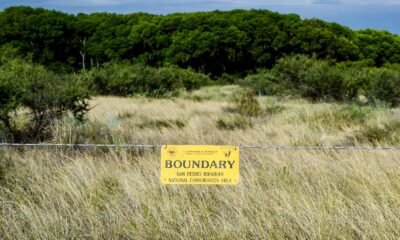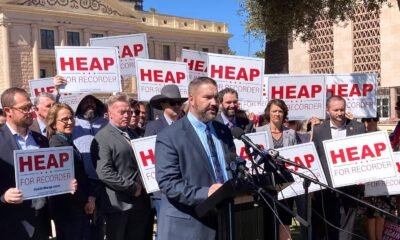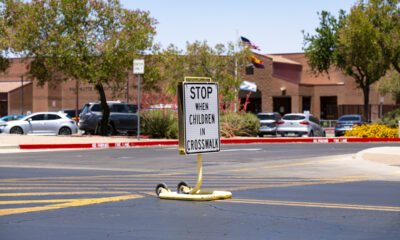crime
Arizona Election Workers on High Alert for Looming AI Threats

In Arizona, state officials are on high alert for potential election-related threats, particularly those linked to AI technology. With the general election just weeks away, leaders reported few present dangers during a recent discussion.
A panel led by Arizona Secretary of State Adrian Fontes convened Thursday evening, exploring the ramifications of AI-generated deep fakes and misinformation on election integrity. This event, held at Arizona State University, was co-hosted by the McCain Institute and the Alliance for Securing Democracy.
“We haven’t seen as much AI in 2024 as expected,” remarked Bret Schafer from the Alliance for Securing Democracy. He noted, however, that this trend should not lead to complacency.
Fontes emphasized the importance of preparedness among election workers statewide, who have been trained to identify deep fakes and misinformation campaigns that could confuse voters. His office engaged in practical training, including creating AI deep fake videos to test their workers’ responses. “It’s like Dungeons and Dragons for election nerds,” he joked.
In addition to navigating misinformation, election personnel learn to mitigate risks associated with AI-generated scams that could threaten election security. “We’re intercepting phishing attempts all the time,” Fontes stated. While acknowledging a lack of disinformation campaigns so far, he urged voters to maintain a skeptical approach toward the information they encounter. “If something feels a little weird, chances are it is,” he cautioned.
Moderators discussed potential regulations surrounding AI. However, Maricopa County Supervisor Bill Gates expressed hesitation, stressing the value of free speech. “I’m sure there will be policy prescriptions, but I don’t think we know yet what policy and laws ought to be passed,” he noted.
Attempts to regulate AI in Arizona have faced challenges previously. Earlier this year, a Republican-majority Senate proposed two bills banning the creation of deceptive media intended for exploitation. One bill was vetoed by Governor Katie Hobbs, while the other remained unsigned when the legislative session ended.
Regarding concerns over AI-generated malware, Gates reassured voters that ballot tabulation machines are disconnected from the internet, safeguarding them from external influences. Schafer pointed out that the rapid spread of misinformation via social media is not new, but its velocity poses significant challenges. “The adversaries are gaming the system,” he explained. “It’s the drowning out of the positive information that concerns me.”
Despite the variety of threats highlighted in the discussion, confidence in the integrity of Arizona’s electoral process remains strong. “They’re run by good people who are well-intentioned,” Fontes asserted, emphasizing the dedication of election workers. “There’s no proof otherwise,” he concluded.

















